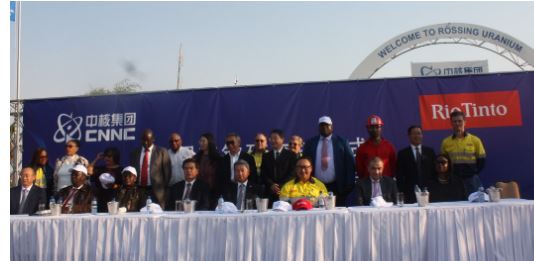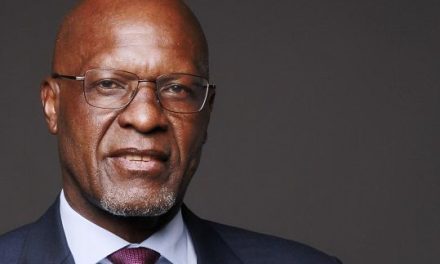
Namibia’s grand old lady of the uranium sector defies odds – Mine officially handed over to new majority share holders

Anglo-Australian mining giant Rio Tinto officially handed over Rössing, to its new majority shareholder, China National Nuclear Corporation (CNNC) at an event last week in Swakopmund.
Rio Tinto which had the majority shareholding in Rössing Uranium of 68.62% completed the share sales to CNNC following approval by the Namibia Competition Commission.
Rio Tinto Energy and Minerals CEO, Bold Baatar, said during their tenure, they had an opportunity to create a world class business that contributed to the growth and development of Namibia and its people.
“While this was not an easy choice to make to sell, it was one that ensured a strong future for the business,” he added. According to him, with the new partners CNNC, Rössing will chart a new pathway, sustaining the business for years to come.
Baatar said even as the Rio Tinto flag comes down over Rössing, his company will very much remain committed to Namibia.
Erongo Governor Cleophas Mutjavikua welcomed the new investment and stated that the region will now focus on building a new chapter in the history of Rössing Uranium.
“We know that this new chapter would allow the businesses to prosper to the benefit of not only our stakeholders, but also the economy at large,” he added.
The Deputy Minister of Mines and Energy, Kornelia Shilunga, said that the event signalled the dawn of a new future for all.
“With the necessary cooperation with government and stakeholders, a lot can be done for future generations,” she added.
China’s Ambassador to Namibia, Zhang Yiming dismissed notions that the acquisition of Rössing Uranium Mine by CNNC may cause a monopoly in the industry considering that now both Namibian uranium mines (Rossing and Swakop Uranium) now belong to Chinese state-owned companies..
According Yiming the two companies are independent, competing business entities hence there is no monopolization.
Meanwhile, other delegates present at the event echoed similar sentiments and stated that the move to sell the majority shares to China will ensure the continuation of a 43-year-old legacy and retain jobs for the around 2,000 employees.












































